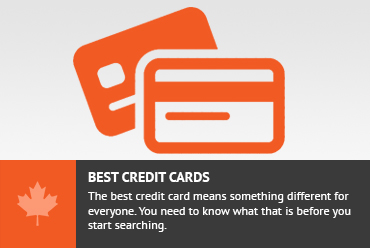When determining how much money you need to travel long-term, a key ingredient to setting your travel budget is to know if – and how – you can earn money while you’re on the road. This month’s reader question explores just that.
Dear Nora: I want to travel long-term, but I don’t have much in savings. How do I earn money as I go? – Kate
Great question, Kate. Here are 11 ways to earn money while you travel:
Teaching English
Teaching English abroad is a common way for people to earn money while travelling. Countries like South Korea, Vietnam, and China (and much of Asia) are hotspots for teaching gigs, with some in Latin America and Eastern Europe as well. Most teaching contracts cover your accommodation, sometimes your flights, and provide a stipend that allows you to live and also save money for excursions and travelling between contracts. The hours can be long and the work is hard, but it is also a culturally immersive experience.
You can take courses (online or in-person; many experienced teachers suggest the in-person courses) that provide you with the certification many schools require, as well as the skills and tools to make your job easier. These certifications include TESOL, TEFL, and CELTA.
For the full scoop on Teaching English abroad, check this post out:
Online Tutoring
Got something you can teach? Teach it online! Using online tools like video calls, file sharing, interactive whiteboard applications, chat, and instant messaging, you can correspond with your student(s) about pretty much anything.
No really – anything! If somebody wants to learn it, it can be taught online. From helping students with their studies, to tutoring languages, to life coaching and even teaching musical instruments – if you have an area of expertise that people want to learn more about, you can tutor online.
You can become a tutor for an existing online tutoring firm, or you can start your own business. This depends on what you want to teach, the market for it, and your entrepreneurial desires. A simple search for online tutoring firms should reveal a number of opportunities; mainly in the realm of helping students with school curriculum.
Freelance Writing
With little more than a laptop and an internet connection, you can earn money as a freelance writer while travelling. Don’t just think of travel writing (profiled below); if you have even an obscure area of expertise, there’s probably a publication about it (online, in print, or otherwise) with an active readership. Establishing a career – even a casual one – in freelance writing can be a long process however, so if you want to earn money with your writing while you travel, develop your portfolio before you leave.
Resources for Freelance Writing:
Travel Writing
Travel writing is a modality of freelance writing, and the most common one travellers gravitate towards. This creates some fierce competition in the industry, so you have to be an excellent writer with editorial contacts and a portfolio of published articles if you want to sustain your travels financially with travel writing.
One way to stand out and increase your chances of being published is to become an expert in a niche of travelling and travel writing. Not all travel writing is hotel and restaurant reviews for high-end magazines; you can write about adventure travel, the finance of travel (as I do), travelling as a couple or family, solo, train travel, and much more. Similar to freelance writing, however, don’t expect travel writing income to flow right away; it takes time and commitment to earn money as a travel writer.
Resources for Travel Writing:
Blogging
Blogging is a form of freelance writing (and can be a form of travel writing as well). But if you have your own blog, you are not only a writer but also an editor, publisher, web developer, copywriter, photographer, and marketer. A new blog is born every 30 seconds (with a large contingent of them being travel blogs), so it also pays to have credentials and a niche you can work, or your blog will get lost in the shuffle.
Blogs don’t generally start making money until there is an established web rank, a healthy portfolio of articles, a following of readers, and some social networks for promotion. So like the above two ways of earning income on the road, don’t expect to make millions (or thousands, or even hundreds) overnight. But once your blog is recognized and well-established, you can earn money through advertisers, affiliate sales, sponsorships, digital products and services, and even in the possible sale of your blog.
Resources for Blogging:
- Dear Nora: 24 Tips to be a Successful Travel Blogger
- Financial Travel Tip #102: Blogging vs Freelance Writing, and Getting Gigs
- The Business of Blogging
- Paid to Blog – how to become a freelance blogger
Location Independent Business
A location independent career can be run from anywhere in the world, regardless of location. (Writing and online tutoring are examples, but there are many more). The internet is an obvious tool for running such a business, along with other communication tools such as voice/video conferencing, phones, project-management software, email marketing tools, websites, and more.
You don’t have to be a whiz web designer to earn money with a location independent business either; I’ve met voiceover artists, airport management consultants, wildlife illustrators, database architects, jewelry designers, import/exporters, coaches, and more – all who make a living from all over the world, with clients in equally far-flung places.
Resources for running a Location Independent Business:
- How to Go Location Independent: The Ultimate Beginner’s Guide
- Want to go Location Independent? Read These 12 Considerations First
Working as a Telecommuting Employee
Another form of location independent work is telecommuting as an employee. This will appeal if you don’t want the onus of running a business – and sometimes, you can even convince your existing boss to let you telecommute while you travel. It behooves employers to let employees telecommute, since it saves them money and resources on office space, and employees are often happier and more productive in being able to construct their own hours and workspaces, and save time and money on commuting. With internet, phone, and video conferencing, communication with the office is a breeze.
Working on Boats
From wee sailboats to private mega yachts to full-on cruise ships, there are quite a few ways to make money on boats, depending on your skills. The jobs – and the boats – vary dramatically. Small sailboats running charters sometimes hire a host/hostess to prepare and serve meals on board the boat, and to keep the quarters clean and the guests happy. You don’t earn a ton of money doing this but your accommodation, transportation, and food are provided. Mega-yachts hire a larger variety of positions (from deck hands to cooks to engineers to hosts), and although the hours can be long, again you’re getting a travel experience by virtue of the job and you can save the money you make since your accommodation and food is covered.
And then there’s work on cruise ships – which, being like floating cities/hotels, have a large variety of positions available. With all your expenses covered (often including flights to/from the ship), you can save your salary which gives you a chance to travel between contracts.
Resources for Working on Boats:
Renting Your Home Out
If you own a home outright, you can rent it out for income. If the home isn’t paid off, you can still rent it out to cover the mortgage and operational costs, thus building equity while you travel. Unless you have somebody trustworthy and reliable to act as landlord in your absence, you might want to consider using a property management company, who will market and rent out your place, take care of maintenance and emergencies, and transfer the income to your bank account. Of course, they take a fee for their services, usually expressed as a percentage of the gross rental income.
Working Holiday Visas
Up to the age of 36 (but most often 30), Canadians can get 1-year working holiday visas in a variety of countries from much of Europe to Australia and New Zealand (start young and you can work for a year each in many countries). These visas allow you to get any job for which you are qualified and can find employment for.
Although you could get any job, working holiday visas are generally intended for seasonal and temporary jobs, since most working holiday visa travellers want short-term work to boost their savings and continue travelling. But there are travellers who have found rewarding jobs abroad with working holiday visas that have led to careers and full relocations with employer sponsorship to stay on.
Resources for Working Holiday Visas:
Working Odd Jobs
Transferrable skills like bartending, massage, construction, and hospitality services can serve you well on the road. However if you don’t have legal working rights in the country you’re visiting, it can be difficult to find work (and although some travellers do it, remember it’s not legal). Depending on your skills, networking ability, and being in the right place at the right time, you can keep busy with odd jobs on the road, and in some cases get working visas sponsored by employers.
Don’t believe me? Read about how this couple in their 40’s got odd jobs abroad in an eclectic handful of countries:
A Note About Travel Time Frame, and Forward Planning
For shorter or fixed-duration trips (of a year or less), it may be better to save a fixed amount of money and just enjoy your trip, since spending half your waking hours abroad working is probably not how you envision your trip. Check out this article to determine how much money you need to travel on a long-term basis.
If you are planning a longer or more open-ended trip, working along the way becomes more viable (and necessary), and also a culturally immersive and rewarding experience. When setting your travel budget however, consider how long it will take you to find a job once you arrive if you’re travelling with a working holiday visa or looking for odd jobs. Don’t count on jobs you don’t yet have; have some money saved to float you in the meantime.
Lastly, don’t forget about retirement! If you’re travelling indefinitely, consider what have you done – and/or will continue to do – to plan for your retirement years when you’re unwilling or unable to work/travel.
Interested in Working Abroad?
There’s more to making a living while traveling the world than just making a living. The newly released Working on the Road: The Unconventional Guide to Full-Time Freedom profiles all kinds of careers (both online and “on-the-ground”), and interviews dozens of people who have found a way to make travel and working abroad a viable lifestyle. You’ll get all the tools you need to embark on the lifestyle yourself, along with realistic experiential advice.
Check it out; for a limited time, you can get a special introductory price and save up to $50.
earn money while travelling, earning income, travel income











Thanks for the Travel Writing 2.0 book shout-out! There’s also an accompanying blog where we interview successful writers, bloggers, and editors who dish out good advice. They’ll all back up what you said in your post: it takes a while to reach a level of financial return that’s enough to pay your bills. It requires a long view. Unlike some of the other methods you outlined, which can be faster. (I taught English in Turkey and Korea and they were great experiences!)
http://travelwriting2.com/
Thanks for weighing in, Tim! As a successful writer in the industry, you dole out practical and realistic advice, and I advise aspiring travel writers to visit your site. Cheers!
Hello Nora,
I just discovered you blog and really like it! Thanks for the post:)
I have a question: I’m finishing my Master’s studies in Engineering (although I’m an Architect) and my goal is to work changing location every few weeks/months… I don’t know if I want to do it for ever but I’m sure I want to dotit at least for the next 10-20 years. The thing is I haven’t met anyone with a similar profile who also works around the world (generally you either work for a company a can relocate, but only after a few years or you run your own company that doesn’t let you travel that much). Have you happened to know any Architect/Engineer who lived like that?
Thank you very much!
Hi Joseph,
Given that there are more and more jobs that can be done digitally, and that many companies are embracing the telecommuting employment structure, I’m sure it’s possible to work in architecture/engineering from abroad. It’s just a matter of finding the right job and company to do it with. Off the top of my head, I don’t know any engineers/architects that are working from abroad, but that doesn’t mean there aren’t any. 😉
One wee piece of advice however: you’ll burn out if you try to move around every few weeks. Moving takes up a lot of time and energy (choosing a place, researching where to stay, what to do, booking flights, finding accommodation, arriving and learning the ropes, etc etc etc), and you’ll be sacrificing either your work or your travel/exploration time if you move too quickly. I would suggest at a maximum speed moving every month. I prefer 2-3 months minimum.
There are a bunch of companies that actually take care of all the travel arrangements for you and give you a community of digital nomads to live/work/travel with; if you can find an employer who wants to sponsor you to do this, you could have a fun travel lifestyle for a while! Here’s some more info: https://www.creditwalk.ca/dear-nora-global-co-living-co-working-trips-for-digital-nomads/
Thank you for your time! I’ll have a look at your other posts and try. You’ve been really helpful. Thanks again!:)
Being a chiropractor, I earn enough to afford traveling supposedly but I couldn’t have been more wrong. It is necessary to have a stable income while you are going as it is a costly hobby which is not affordable for everyone.
Hey Greg,
I’m sorry you had to learn – the hard way! – that travel can be costly. It definitely is a balancing act, and the cost of your travels depends on sooooooo much more than we think!
Here’s a post I wrote that helps to take the mystery out of developing a budget for travel: https://www.theprofessionalhobo.com/how-to-create-a-long-term-travel-budget-financially-sustainable-travel/